El Salvador crackdown breaks the gangs – at huge cost to human rights
By Jamie Quintanilla and Tom Philips
On February 20, 2023
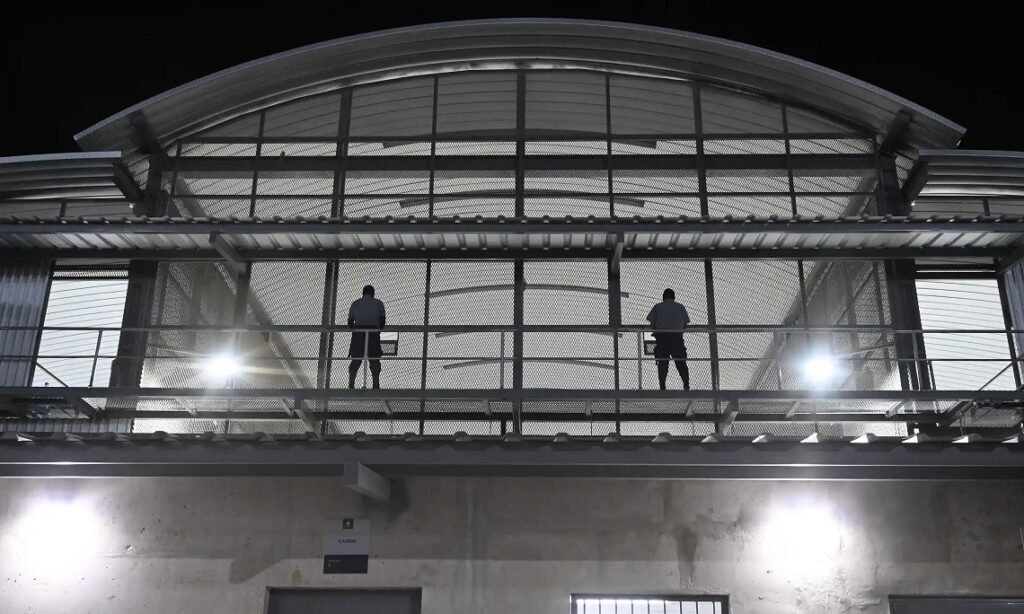
War on gangs by populist leader Nayib Bukele has produced extraordinary change, but ‘the cure could be as harmful as the disease’
Jaime Quintanilla in Soyapango and Tom PhillipsMon 20 Feb 2023 05.30 EST
To visit her father in the Salvadoran community of El Pepeto, Karla García used to run a fearsome gauntlet of gangs and guns.
The two streets separating their homes were a bullet-pocked no-man’s land where members of the Mara Salvatrucha and Barrio 18-Sureños groups fought deadly battles for control.
“It was really dangerous. They’d have shootouts just outside,” said the 40-year-old homemaker from Soyapango, a satellite city east of El Salvador’s capital, San Salvador.
Yet on a recent Saturday afternoon, García sat in front of her father’s greenhouse with her family and there was not a criminal to be seen, nor a gunshot to be heard.
“They’ve completely vanished,” she said of the street gangs who for years ruled the area with an iron fist. Nearby walls – once spattered with the black insignia of the community’s crime bosses – had been painted white by the government to symbolize a new era of peace.
El Pepeto, a working class warren of single-storey homes, is far from the only mara-dominated neighbourhood in El Salvador to be experiencing once unthinkable days of calm.
After a highly controversial year-long “war” against El Salvador’s notorious gangs waged by the country’s populist leader Nayib Bukele, similar scenes are playing out across a Central American country once considered one of the most violent places on Earth.
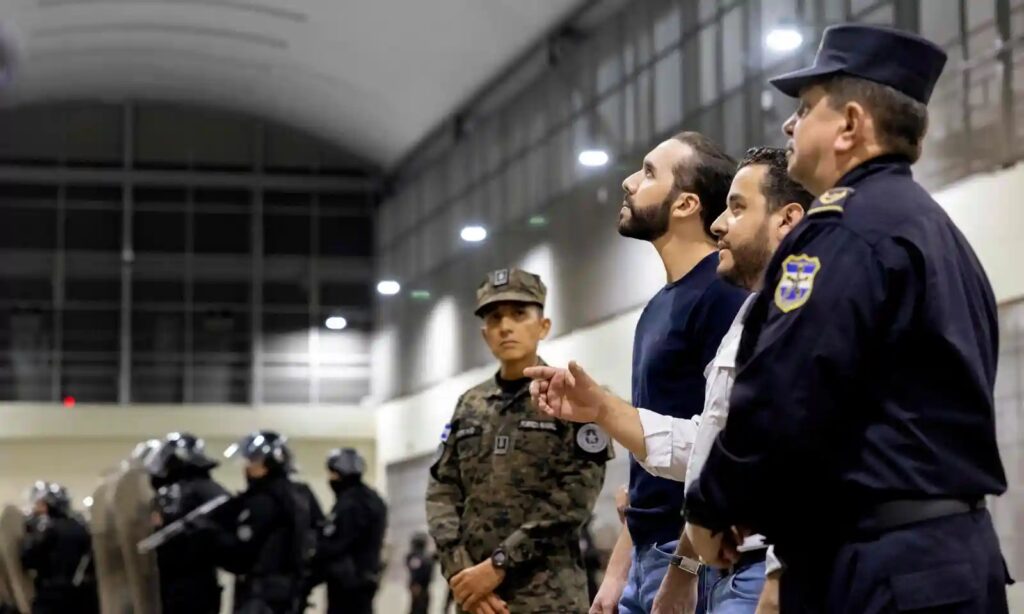
Even staunch government critics such as the trailblazing news outlet El Faro have conceded that Bukele’s crackdown – which has seen more than 64,000 people jailed and dramatically slashed the murder rate – has produced “extraordinary change” for Salvadorans, albeit at a huge cost for democracy and human rights.
Thousands of innocent people are believed to have been arrested since the offensive began – some simply for “resembling” criminals or after anonymous tipoffs – while more than 100 have died behind bars.
“The dismantling of gangs has enormous life-changing potential for the country,” El Faro reported recently after documenting the groups’ apparent dissolution in a detailed 5,000-word investigation. “They have ruined the gangs as you knew them,” one senior gang boss declared.
In recent days, the Guardian visited eight communities in and around El Salvador’s capital to explore the unexpected pacification. Until recently, five had been the dominion of the Mara Salvatrucha, two the Barrio 18-Sureños, and one the Barrio 18-Revolucionarios group. In none was there any sign of gang members, who before would loiter on street corners, drinking, smoking marijuana and constantly observing locals and outsiders.
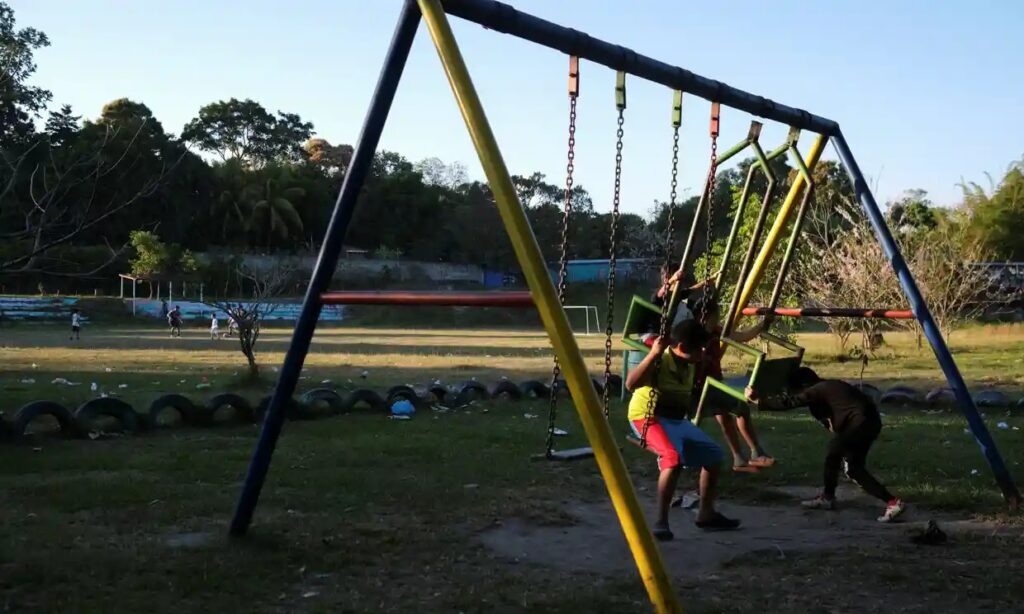
During those visits, the Guardian spoke to more than 20 sources including shopkeepers, police officers, community leaders, residents and taxi and bus drivers. All agreed that the criminal groups were a shadow of their former selves, although many suspected some had absconded or fled abroad to dodge a round-up that has seen about 2% of the adult population jailed.
Earlier this month Bukele celebrated the construction of a 40,000-capacity “terrorism confinement centre” to house the alleged “terrorists” incarcerated during his crusade against the gangs which were introduced to the country after their founders were deported from the US in the 1990s.
“Before you wouldn’t have even made it past the community’s entrance without them intercepting you. It was unthinkable to get in without their permission,” one police source said of La Campanera, another notoriously violent Soyapango community to which thousands of troops were sent late last year.
In a third area, San Salvador’s 10 de Octubre community, a local leader recalled how residents had spent years obeying the gang commandment of “see, hear and shut up”.
“You basically had to pay a tax in order to live,” he said of the crippling extortion payments Mara Salvatrucha members had demanded of businesses and residents.
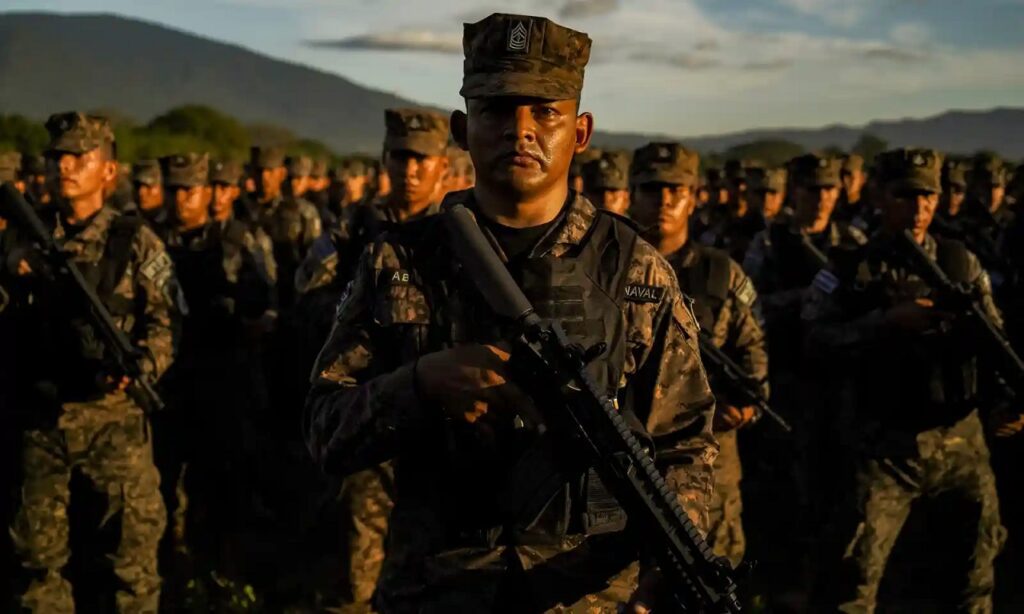
But such shakedowns stopped after Bukele declared a state of emergency in March last year following an explosion of bloodshed observers suspect was the result of the collapse of a secret pact between the gangs and the government.
“So far, with the state [of emergency] this has changed,” said the community leader, although, like many interviewees, he was uncertain how long the calm would last.
Bukele, a social media-savvy former advertising executive, has basked in the reports of longtime critics that his gang offensive is working, boasting on Twitter that human rights groups and journalists had been forced to recognize “the absolute success of our war on the gangs”.
But many remain profoundly skeptical over the durability of El Salvador’s moment of peace and troubled over the crackdown’s implications for democracy in a country where more than 75,000 people died during the 1979-92 civil war.
Since taking power in 2019, Bukele has been accused of systematically dismantling El Salvador’s democratic institutions and wrecking the rule of law – charges that intensified after last year’s declaration of an anti-gang state of emergency saw basic civil liberties and due process suspended.
On Tuesday, as relatives of some prisoners marched through El Salvador in protest, the state of emergency was extended for the 11th month in a row.
“El Salvador has turned all the power over to one person: President Nayib Bukele,” El Faro warned. “Under this authoritarian regime it is the ruler who decides what to do and what to tell us.”
José Miguel Cruz, a Salvadoran gang expert at Florida International University, suspected claims the gangs had been fully dismantled were overstated, despite anecdotal evidence that such groups no longer commanded many neighbourhoods. The underlying problems that helped spawn and sustain the groups – poverty, inequality and discrimination – had not miraculously disappeared.
Scant information about what was happening in the country’s increasingly crowded prisons made it impossible to gauge what was really going on. “And what is happening in the prisons is key to what is happening in the street,” Cruz added.
But Cruz believed that for Bukele, an authoritarian-minded populist hoping to secure a second five-year term next year, the crackdown had been a resounding political success. The millennial president’s approval ratings had soared as official propaganda painted him “as a magician who was finally able to bring peace to El Salvador”.
“The success story is not the [defeat of the] gangs. It’s his perpetuation in power … It’s working wonderfully for him,” Cruz said.
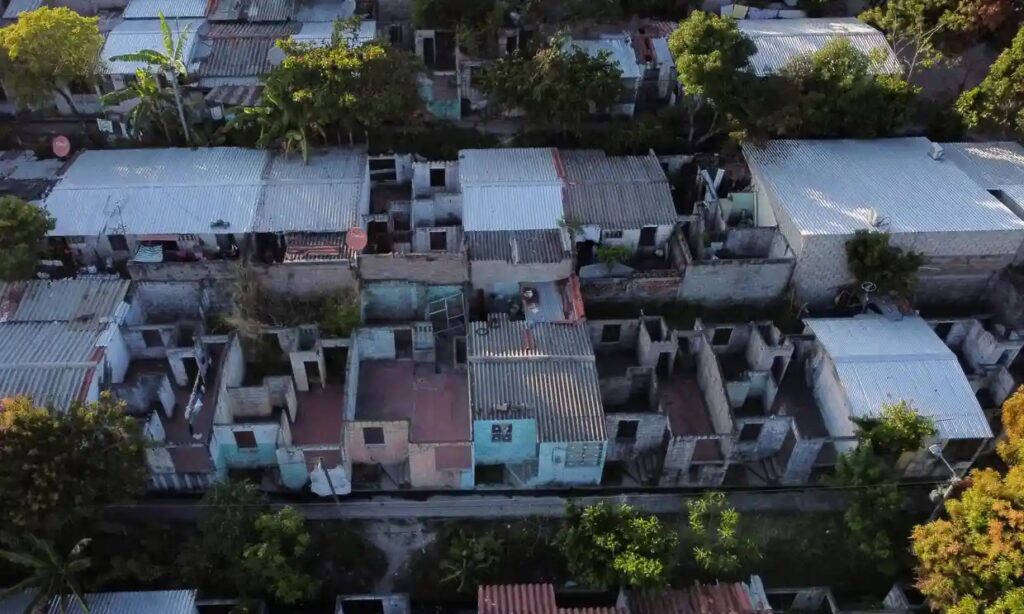
Benjamin Lessing, a University of Chicago expert in drug cartels, prison gangs and paramilitary groups, said there were many unanswered questions over the supposed dissipation of El Salvador’s once-mighty gangs.
What had happened to their top leaders, and who was now calling the shots in the areas they had ruled?
Was their purported defeat simply the result of overwhelming government repression, or had – as some commentators claim – Bukele’s administration struck secret deals with some of their top chiefs, leaving the criminal rank and file leaderless and disillusioned?
In a recent article for the Washington Post, the Salvadoran anthropologist and journalist Juan Martínez d’Aubuisson noted how one prominent gangster known as “El Crook” had been escorted over the border to neighbouring Guatemala by a top government official. Another was released from jail.
Martínez d’Aubuisson claimed the gangs had been vanquished by “a more efficient and organized criminal form, with superior firepower: the state mafia controlled by President Nayib Bukele”.
“The maras will only survive in so far as they are able to align themselves with this new predator which tolerates no kind of competition,” he wrote.
Lessing said the long-term consequences of Bukele’s crackdown were unclear, although it was conceivable El Salvador was experiencing a major tectonic shift which would remake its criminal landscape as much as the rise of the maras did during the 1990s. “There are regime changes in criminal governance,” Lessing said, pointing to similar shifts involving drug factions and paramilitary groups in Brazilian cities such as Rio and São Paulo. “This could be one of those moments.”
Cruz said he feared the crackdown would have dire political consequences, allowing Bukele to win the 2024 election and ushering in a painful period of authoritarian governance.
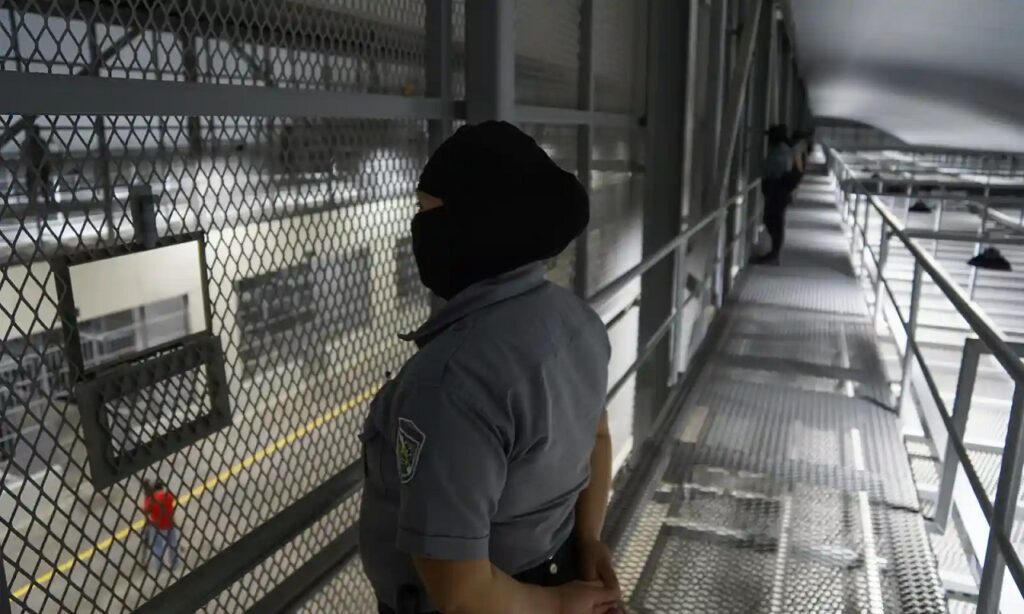
“I’m very pessimistic. I think many people will realize their mistake in the next two or three years – but it will be too late,” he said. “[Bukele] already controls everything. He has absolute loyalty from the security forces.”
Whatever the future holds, ordinary Salvadorans are, for now, relishing the unusual taste of freedom from gang rule.
“It’s excellent because we feel safer. We can move around more freely … people visit us more, people who didn’t come over now do,” said García, although she asked for her name to be changed for this article and voiced concern over the detention of one local man who was jailed despite having no links to the gangs.
El Faro recognized the melting away of the gangs in such areas represented “a fundamental change in the life of thousands of Salvadorans”.
“But the price we’ve had to pay for it is sky-high,” it warned. “The cure could be as harmful as the disease.”
This piece was republished from The Guardian.